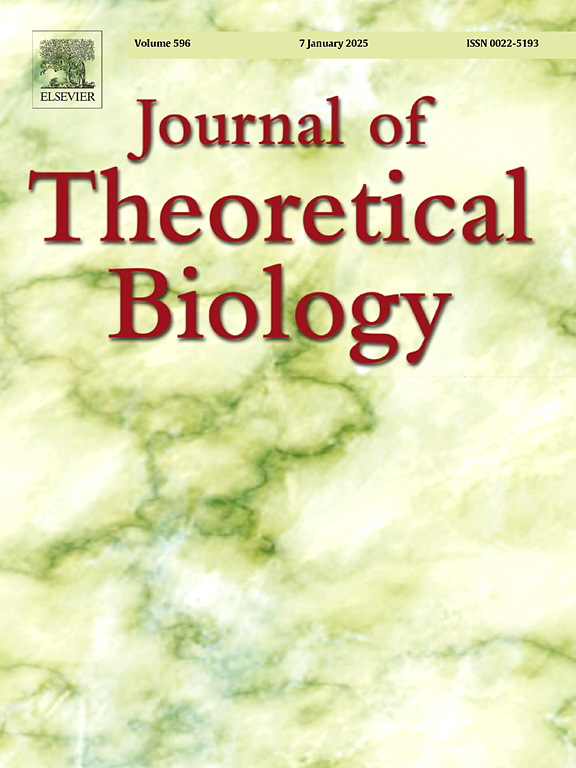Phenomenological modeling of gene transcription by approximating cooperativity of transcription factors improves prediction and reduces complexity in gene regulatory network models
IF 2
4区 数学
Q2 BIOLOGY
引用次数: 0
Abstract
Several computational models are available for representing the gene expression process, with each having their advantages and disadvantages. Phenomenological models are widely used as they make appropriate simplifications that aim to find a middle ground between accuracy and complexity. The existing phenomenological models compete in terms of how the transcription initiation process is approximated, to achieve high accuracy while having the lowest complexity possible. However, most current models still suffer from high parameter complexity in the case of complex promoters. Herein, we formally derive a phenomenological approach to model RNA polymerase recruitment, stating approximations on cooperativity between transcription factors that are applicable to promoters requiring multifactorial input, which reduces parameter complexity. We then apply this method to biologically relevant networks of varying complexities to show that the approximations improved predictive ability compared to existing models. In summary, our reduced parameter model (RPM) had lower complexity while maintaining high accuracy, which leads to better scalability for complex networks.
通过近似转录因子的协同性来建立基因转录的现象学模型,可以提高预测能力,降低基因调控网络模型的复杂性。
有几种计算模型可用于表示基因表达过程,每种模型都有其优点和缺点。现象学模型被广泛使用,因为它们进行了适当的简化,旨在找到准确性和复杂性之间的中间地带。现有的现象学模型在如何近似转录起始过程方面存在竞争,以达到高精度,同时具有尽可能低的复杂性。然而,目前大多数模型在复杂启动子的情况下仍然存在较高的参数复杂度。在此,我们正式推导了一种现象学方法来模拟RNA聚合酶募集,说明了适用于需要多因子输入的启动子的转录因子之间的协同性的近似,从而降低了参数的复杂性。然后,我们将这种方法应用于不同复杂性的生物相关网络,以表明与现有模型相比,近似提高了预测能力。总之,我们的降参数模型(RPM)在保持高精度的同时具有较低的复杂性,这使得复杂网络具有更好的可扩展性。
本文章由计算机程序翻译,如有差异,请以英文原文为准。
求助全文
约1分钟内获得全文
求助全文
来源期刊
CiteScore
4.20
自引率
5.00%
发文量
218
审稿时长
51 days
期刊介绍:
The Journal of Theoretical Biology is the leading forum for theoretical perspectives that give insight into biological processes. It covers a very wide range of topics and is of interest to biologists in many areas of research, including:
• Brain and Neuroscience
• Cancer Growth and Treatment
• Cell Biology
• Developmental Biology
• Ecology
• Evolution
• Immunology,
• Infectious and non-infectious Diseases,
• Mathematical, Computational, Biophysical and Statistical Modeling
• Microbiology, Molecular Biology, and Biochemistry
• Networks and Complex Systems
• Physiology
• Pharmacodynamics
• Animal Behavior and Game Theory
Acceptable papers are those that bear significant importance on the biology per se being presented, and not on the mathematical analysis. Papers that include some data or experimental material bearing on theory will be considered, including those that contain comparative study, statistical data analysis, mathematical proof, computer simulations, experiments, field observations, or even philosophical arguments, which are all methods to support or reject theoretical ideas. However, there should be a concerted effort to make papers intelligible to biologists in the chosen field.

 求助内容:
求助内容: 应助结果提醒方式:
应助结果提醒方式:


